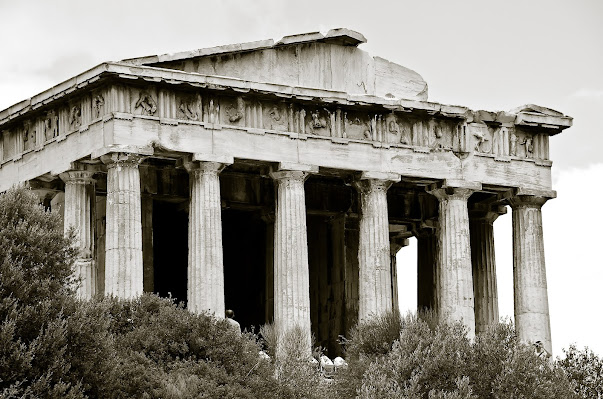Week 4: Story
"Mythology: Uranus" Karl Frederick Schinkel, 1845
Web Source: Wikimedia Commons
For this week's story assignment, I watched the crash course videos about mythology. I actually found them really interesting, and the first and last videos in particular helped my perspective.
I loved the new definition that he gave to myths. I would definitely say that I fall victim to thinking about myths as stories that aren't true, but it really helpful to think of them as stories that are pervasive and can teach us a lesson about our culture and cultures past. I especially liked the point about how religious stories can qualify as myths. As a religious person, it has always felt weird to me to hear these stories that I grew up hearing described as myths, because it always felt almost disrespectful to describe them (or any other religion's stories) as a "myth," so that gave me some really helpful perspective.
My favorite video was the last one, where he talked about the "hero's journey." I loved the perspective of it being a way for us to look at our own lives. I think that that's how my high school English teacher taught me how to read literature. There's so much that we can learn, even today, from these myths. For example, from what I read this week about Odysseus, there's a lot you can learn about the dangers of our actions. Odysseus never had to face the consequences of his actions, but was always really defensive of them. There's then a great application to our own lives about how our actions affect others and being willing to hear criticisms of our actions instead of assuming that we are always in the right.



I really liked how you described Odysseus, saying that he is defensive and often avoidant of consequences or taking responsibility. I kind of reminds me of the protagonists we would learn about in high school, because so many adolescents have a similar type of ignorance to their own actions when they are younger. I was just reminded of that because you said it reminded you of your high school English teachers style of teaching literature!
ReplyDeleteLeah, your thoughts of the videos correlated with some of mine when I was watching the videos as well! I'm a big fan of Greek mythology, as is everyone I assume, but always thought about it in the ways that they are strictly stories and nothing more. I'm also a religious person myself, and while it is very easy to imagine what it would be like if the stories from these myths were of actual reality, I found it uncomfortable because of my own beliefs to think that way. These stories were meant as a tool to teach and for the most part, I think it accomplished the goals that the author(s) had in mind when creating them.
ReplyDelete